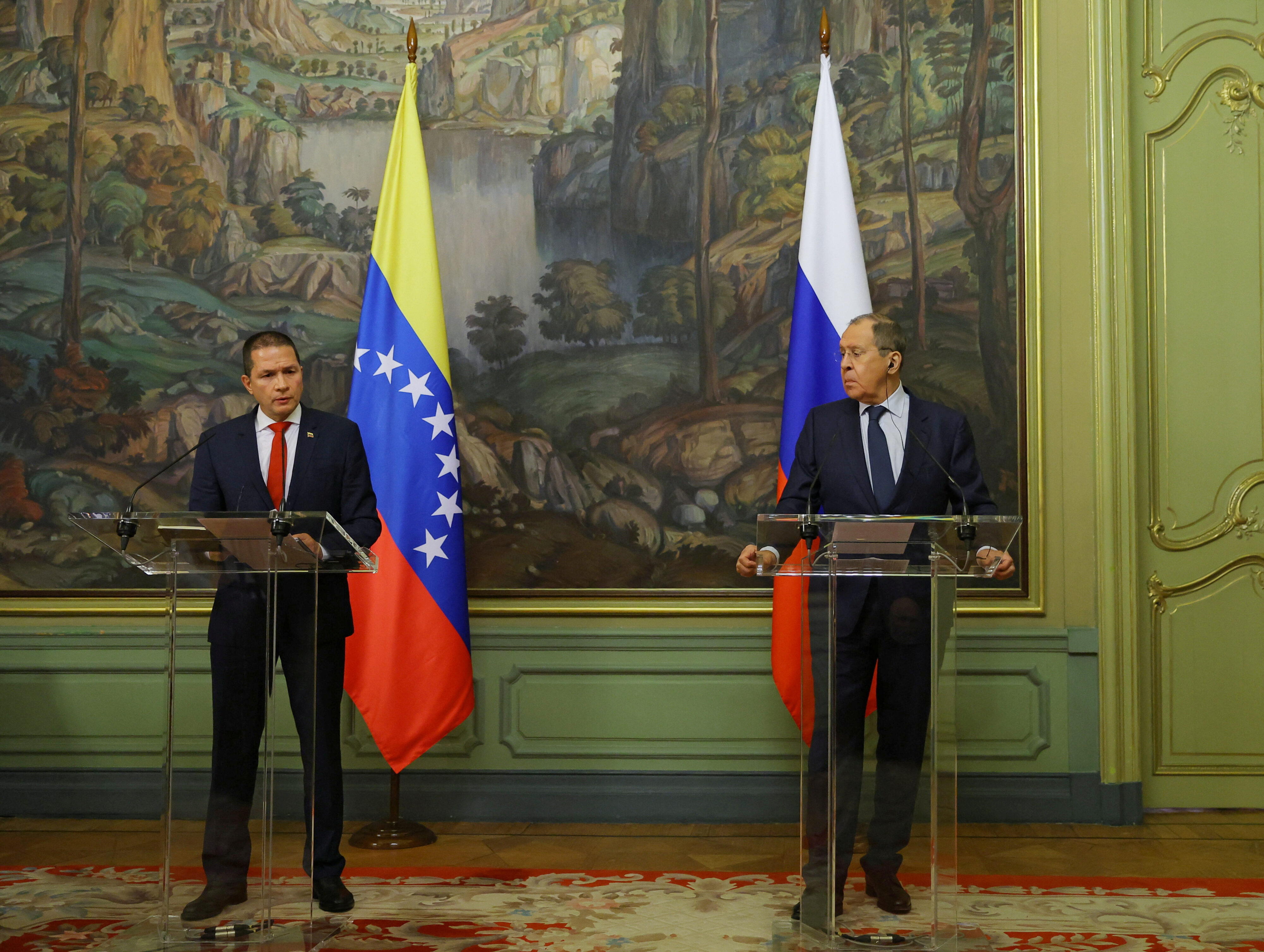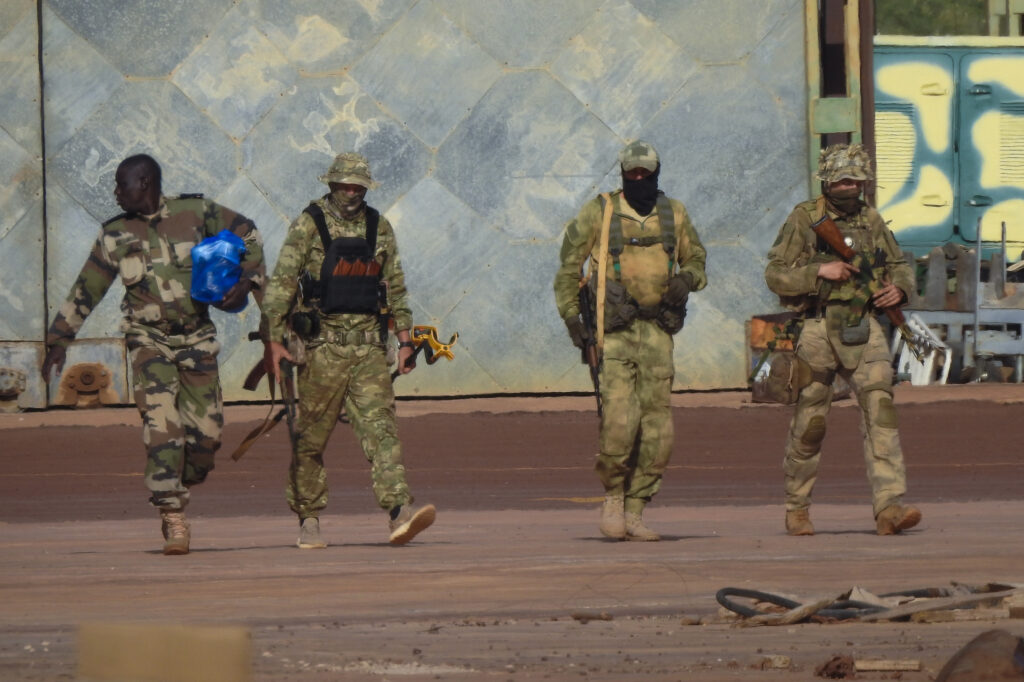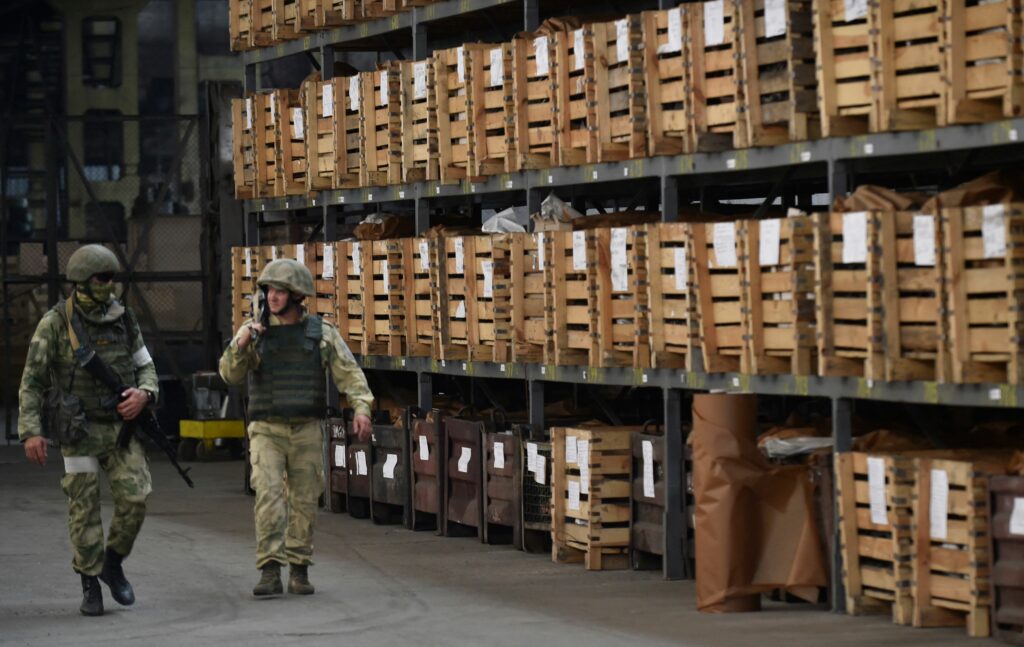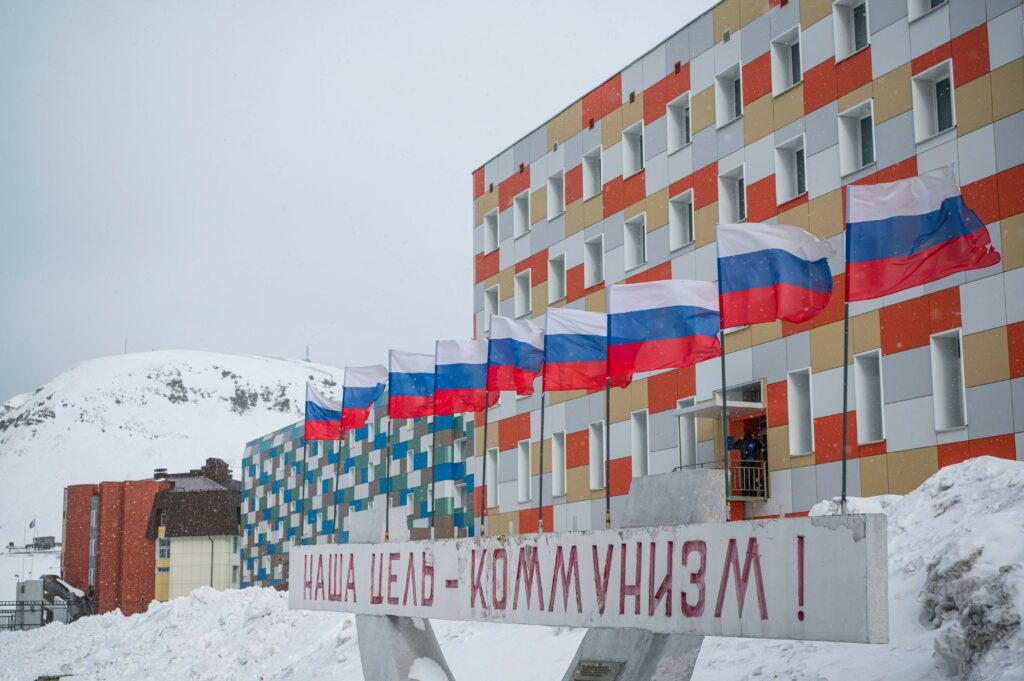Ever since 2014 — the year Russia’s invasion of Ukraine began — Moscow has been seeking international partners in its open ended confrontation with the West, particularly in the countries of the ‘Global South’. With few exceptions, Russia began propping up authoritarian regimes whose survival undermined international norms and Western primacy. Bashar al-Assad in Syria, Daniel Ortega in Nicaragua and Min Aung Hlaing in Myanmar are among the leaders whose survival has been aided by Moscow’s active support. In Syria we have seen the full spectrum of what Russia could offer to its ‘allies’: military intervention, economic and financial lifelines, and diplomatic clout. On top of that, one scarcely understood form of support is also offered by Russia’s intelligence services. While mostly focused on Russia’s immediate neighbourhood and on Western states, Russian intelligence is present in all regions of the world; those agencies frequently play a role in Moscow’s bargaining with international ‘clients’. So what can Russian intelligence services provide to partner regimes far afield? Here I present the case study of Venezuela, looking into the role Russian intelligence plays in securing the regime of Nicolas Maduro.
The opportunity within the crisis
Venezuela is a significant Russian partner in several domains, including intelligence. Moscow has had ample opportunity to entrench these links further amid Venezuela’s longstanding political and economic crisis. As the Maduro regime clings to power, over five million Venezuelans have left the country, escaping extreme poverty, repression and a closed political system. To ensure the survival of his regime, Maduro has marshalled the resources of the Venezuelan state, creating a capable surveillance and repression apparatus. For support, Caracas has also drawn from a network of willing international partners that includes China, Cuba, India and Turkey. When it comes to intelligence cooperation, the preferred international partner of Venezuela on intelligence has been Cuba. The security services of the island are known to transfer capabilities and lend support for the survival of the Chavez and Maduro regimes. But Cuban-Venezuelan cooperation has been transactional since the passing of Chavez in 2013. The 2000s saw Cuban services become deeply involved in Venezuela, even taking key roles in the restructuring of the country’s intelligence services. Since the 2010s, Cuban intelligence services have operated in Venezuela primarily to provide regime security, done in exchange for oil deliveries.
While Cuban intelligence remains deeply involved in Venezuela, they are not present at every level of Maduro’s regime security. The 2018−2019 Venezuelan crisis was the turning point: back then, Maduro expanded Venezuela’s security cooperation with Russia where before Cuban intelligence would operate the most. At the same time, the Venezuelan military has sought to expand its independence vis-a-vis the Cubans by expanding their cooperation with Russia. The outcome has been an enhanced Russian presence in the country.
After all, Russia has an incentive to lend a hand to its troubled Latin American partner. Moscow has several billion USD in investments in the country, guaranteed by the survival of the Maduro regime. Some in Moscow also hope Venezuela will return to a leadership role in Latin America, as it did under Chavez about a decade ago. Moscow helps Caracas with arms supplies, sanctions evasion and financial support.
Russian and Venezuelan intelligence services: first contacts
There are few sources that indicate close contacts between Russian and Venezuelan intelligence agencies in the early 2000s. Yet two facts from that time raise questions. First, back in the early 2000s, Gen. Miguel Rodríguez Torres was tasked with reorganising the country’s civilian intelligence to strengthen Chavez’s rule. During those years he received training in Russia and it was under him that the Bolivarian Intelligence Service (SEBIN in Spanish) was formed in 2010. Later it was Rodríguez Torres whom Patrushev met in 2013 to discuss an expanded security cooperation against drug trafficking. (Russia has made the fight against drug trafficking a frequent channel for international security cooperation, regardless of whether any actual fighting against drug trafficking takes place or not.) Was the Russian sojourn of Rodríguez Torres an early step in high level intelligence cooperation between the two countries? Second, during the 2000s, one of Chavez’s arms suppliers was Viktor Bout, the infamous ‘Merchant of Death’ gun runner believed to be an agent or collaborator of Russian military intelligence (namely, the chief military intelligence agency, the GRU). Did Russian intelligence play a role in Bout’s Venezuelan operations?
A watershed year for the relationship between the two countries’ intelligence services may have been 2008. Back then, Caracas and Moscow signed an agreement on the mutual protection of classified information, with the Russian signatory being the FSB. Russian authorities have later stated that framework agreements such as this one facilitate the cooperation between the two countries’ intelligence services.
In that same year, Igor Sechin became involved in Venezuela’s energy industry, where Rosneft — with Sechin as CEO — would become critical for Venezuela’s economy. Chavez and Maduro reportedly developed a close relationship with Sechin. A well-known siloviki, Sechin sometimes plays a leading role in the so-called ‘sechinite’ branch of the Russian security community, including the sixth FSB directorate founded by him. These nebulous contacts would solidify into high-level intelligence cooperation later on.
Bring radars, guns and money
The year 2008 marked the start of a major downturn for Venezuela with the onset of a global recession. By the time Hugo Chavez was succeeded by Nicolas Maduro in 2012, the outlook had still not improved. Far from it — Venezuela has since entered a decade of economic crisis featuring high inflation (frequently the highest in the world) and the immiseration of millions. Unrest, resistance and repression have become a fixture of Venezuelan politics ever since, culminating in the 2018−2019 crisis around the sham presidential elections and the rise of Juan Guaido. In addition, the prospect of Colombia turning into the staging ground for a US invasion to depose Maduro became real for Caracas.
Moscow has viewed this crisis with concern. Indeed, Putin summoned the Security Council twice in January and April 2019 in discussions that included the heads of the FSB and the SVR, Russia’s two main civilian intelligence agencies.
Before the second meeting, on 25 April, Sergey Naryshkin, director of the SVR, said his service has evidence the US is preparing a military operation in Venezuela and that the US is ‘tearing Venezuela apart’. On the same day, GRU director Kostiukov declared the US is attacking Venezuela from Colombia. These declarations were not followed by overt statements on the nature of the SVR or GRU activities in Venezuela. But, after the abortive May 2020 coup attempt against Maduro, Lavrov confirmed that the intelligence agencies of the two countries were already exchanging information at that time.
There are signs the late 2010s crisis led Venezuela to allow for a larger Russian intelligence presence in the country. First, in recent years, FSB planes frequently fly to Venezuela (sometimes violating Colombian airspace). Second, the Venezuelan authorities may be knowingly facilitating a Russian intelligence presence in their country. It has been reported that Venezuela is among the countries where Russian intelligence finds the least obstacles for their foreign operations, including assassinations. Third, according to journalist Sebastiana Barraez, Russian intelligence officers are present in the highest rungs of Venezuelan counterintelligence, at the General Directorate of Military Counterintelligence (DGCIM in Spanish). Finally, in January 2022, exiled former Venezuelan chief spy Manuel Christopher Figuera sent a letter to various regional media claiming that Russia has two military installations in Venezuela. According to Figuera, one of these secret installations is an intelligence base. Further reports suggest these installations may be Russian-built, yet are not operated by them. Kremlin spokesperson Dmitry Peskov did not confirm or deny the existence of these alleged military assets.
What is the substance of this cooperation? The sources available hint at three main domains, all relevant to military intelligence and regime security: mercenary deployments, signals intelligence and cyberwarfare.
The first area is Russia’s mercenary force in Venezuela: Evgeny Prigozhin’s semi-private and state-aligned military company ‘Wagner’. In 2019, the group operated in Venezuela by the thousands, mostly fulfilling regime and asset protection roles. This deployment likely implicated Russian intelligence agencies and Russian state support. Indeed, Wagner deployments are a common instrument in Moscow’s geopolitical toolkit, especially in the countries of the ‘Global South’. The group is frequently accompanied by GRU agents or officers as sometimes they lend logistical support for the mercenary force. Venezuela was no exception. As Meduza reported in 2019, the FSB and the GRU monitored the deployment in Venezuela and its development. In parallel, the special forces of the SVR have been in the country to protect assets of Russian companies. This deployment may have been progressively scaled back as in February 2022 the Colombian chancellery stated that there might be no more than 68 Russian military staff in Venezuela at the time.
The second area is cooperation in signals intelligence. Maduro’s regime has used signals intelligence for the surveillance of the Venezuelan opposition and for monitoring the border with Colombia. Venezuela lacks a readily-available high-tech industry capable of supplying the tools for these operations, so it must reach out to foreign partners, including Russia. In the past, Russia has cooperated with other states to support their signals operations. For instance, Putin himself mentioned in 2019 that Russia is assisting the construction of China’s missile early warning system. In Venezuela, cooperation has been wide-ranging. The first instance of cooperation in this area may have taken place in 2015. According to an insider military source cited anonymously by Infobae, Venezuela has been using P18 military radars since that year to monitor Colombian airspace. Since then, the two countries have cozied up in signals intelligence matters. In 2018 Venezuela joined GLONASS — Russia’s answer to the GPS network -, widely suspected to be monitored by Russian intelligence. In July 2022, both countries agreed to open in Venezuela Russia’s sixth GLONASS installation in Latin America.
Signals cooperation has special value for Caracas in its conflict with Colombia. Russian specialists have been active as recently as 2021 in giving technical assistance to Venezuelan military intelligence and their radio signals intelligence, especially by the border. Namely, Russian specialists have been active in setting up at least six such installations, five close to the Colombian border and one in Caracas. (Reportedly, a key reason why these Russian specialists are not permanently stationed by the border is that they, simply, prefer to stay somewhere more ‘comfortable’.) Colombia has been a target for Russia’s own operations. Bogotá has been a close NATO partner for years and one of the few non-NATO states to provide any sort of military support to Ukraine in 2022. Russian spies have been active in Colombia, collecting information on Colombian electric and energy infrastructure. In December 2020, Colombia expelled two Russian diplomats reportedly working as spies under diplomatic cover.
The third area of cooperation is cyberwarfare, though here we know very little. In 2014, Venezuela created a cyber defence directorate under the military. Venezuela does not have a substantial information technology industry in its territory, so its access to top technology comes from abroad. Due to international sanctions and reputational risks, Caracas’ main partners on this matter are only those countries aligned with its anti-US foreign policy, namely, China, Iran and Russia. Since 2015, in response to Venezuela’s radio information collection, Colombia has been building cyber-defence capabilities.
What is ahead
Russia has lost much due to its unprovoked war of aggression against Ukraine. While its GDP has not contracted as significantly as expected, it is now a pariah state, erring into autarky and retrenchment. These new circumstances may be driving a rebalancing in the bilateral relationship. Russia’s relative decline and US re-engagement with Venezuela might be enhancing Caracas’ bargaining power. But, Russia is not without leverage in Caracas. During a 14 December visit to Venezuela, Aleksander Novak raised the issue of Venezuela’s debt to Russia as debt restructuring talks loomed. In addition, state officials from both countries hint at long-term cooperation remaining a priority. Russia’s extensive military and intelligence cooperation might give Moscow the edge in its relations with Venezuela. In the end, Maduro might consider that he cannot lose Russia.










